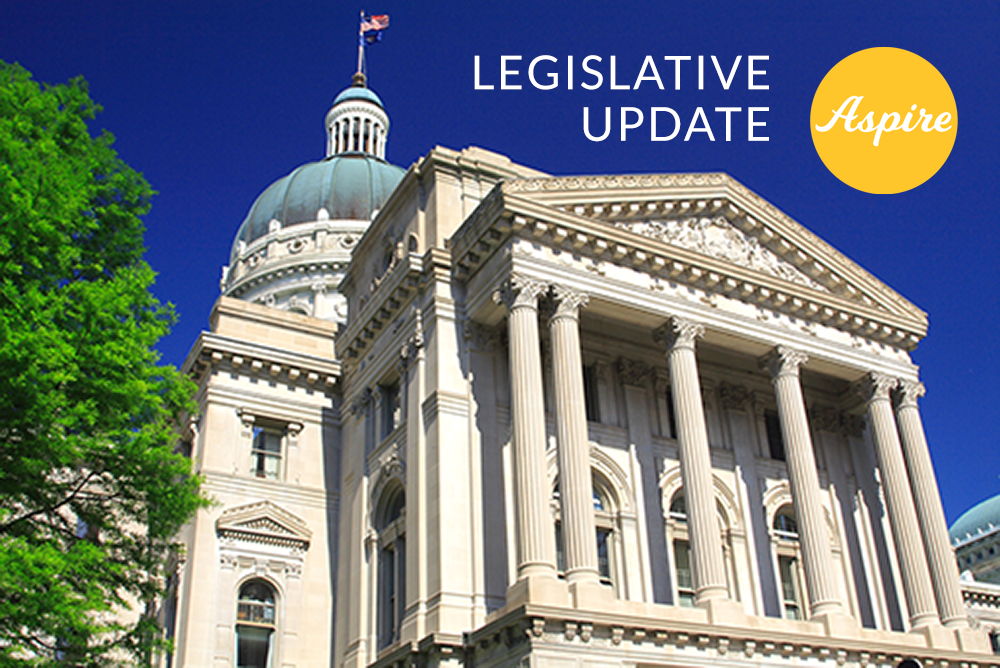Legislative Update Week 8: Procedural Move Threatens Transit Development

Procedural Move Threatens to Kill Transit Momentum
The legislation-making process contains more than a dozen steps before a bill becomes a law. This process is built to foster transparency, due diligence, and dialogue.
Most of this due diligence happens within the legislative committees, where small groups of legislators work to discover the facts surrounding an issue, explore potential legislative impacts, engage stakeholders, and give the public a chance to weigh in.
The process also contains multiple opportunities to shape legislation as it moves through the Statehouse. For example, a bill may be amended from the floor in the House or Senate (“second reading amendment”) after it passes out of committee and before the final floor vote. This ensures the minority voice is adequately heard and committee work gains acceptance by the majority.
But these late-stage second reading amendments are often employed to rush last-minute, potentially controversial provisions into a bill outside the committee process. This eliminates the opportunity for public comment, expert testimony and thoughtful discussion.
A second reading amendment was made in the Senate this past Thursday to HB 1279 that we believe was better suited for the committee process.
The amendment, having nothing to do with the bill’s focus on Northwest Indiana Transportation, requires the State to withhold 10% of IndyGo’s locally collected transit income tax revenue in years they do not meet a private funding threshold. The amendment would also prohibit IndyGo from further implementing new services in Marion County to improve frequency and convenience.
The amendment passed 35-12 and is up for a final vote this coming week. If adopted, this would jeopardize plans to implement the planned Blue and Purple rapid bus routes. It could also prohibit IndyGo from extending additional local route frequency and hours, intended to further improve convenience and access, and better align local routes with the Red Line.
IndyGo acknowledges it has not yet met its private funding benchmark. Albeit delayed and despite its limited resources (recall Indy was the 16th largest US city but ranked 86th in public transportation at the time of the referendum), IndyGo incorporated a foundation in August 2018 and received 501(c)3 status in June 2019. The foundation now has a board of directors and executive director committed to meeting the private funding benchmarks. Fundraising efforts are well underway.
And increased funding for an improved system has already proven to increase ridership.
According to a recent IndyGo statement, “While lower transit ridership is typical in winter months, IndyGo is seeing an upward trend in systemwide winter ridership. This is the second consecutive January that ridership has increased following service improvements. In addition to the eight percent increase between 2019 and 2020, January 2019 system ridership was 4.2% higher than in January 2018. Improving service hours and frequency makes transit a convenient option, even in colder weather.”
Were this amendment’s consequences to the transit operator, residents, and employers fully explored? Were stakeholders and the public invited to formally weigh in? Do all 50 senators have the facts surrounding this topic?
Likely not. The committee process would have been a better opportunity to explore this, rather than a second reading amendment at the end of the session. Aspire will oppose this amendment and will work to remove it, in favor of a more open, collaborative discussion.
The improved Marion County Transit Plan is the foundation for a larger, regionally connected system to deliver more convenient, frequent public transportation to the Indy region, including into Johnson County. This amendment obstructs progress on regional mass transit by redirecting local tax revenues from their rightful purpose and delaying the development of a robust regional system.
Tobacco “T21” Update
Tobacco/vaping cessation SB 1 was heard again this week in the House Public Health Committee where it was amended to make changes to the penalties for retailers and prohibits a tobacco business from locating 1000 feet from a school, while grandfathering in existing businesses before July 1, 2020. Meanwhile, HB 1006 was heard in the Senate Health Committee this week; it was amended to mirror the tobacco and vaping age in SB 1 and make changes to retail penalties.
Central Indiana Regional Development Bill Passes out of Committee
SB 350 Regional Development by Sen. Travis Holdman was heard for a second time this week in House Ways and Means.
This bill originally created regional “investment hubs” including the ability to raise and spend revenue across political boundaries within the region. The Senate removed the funding mechanisms, made the bill a pilot program for the Indy Region, and connected our existing Metropolitan Planning Organization (MPO) and Regional Development Authority (RDA).
The House Ways and Means Committee made a few amendments to the bill.
The first narrows the MPO’s duties to transportation but does allow our RDA to create a comprehensive economic development strategy. Another amendment provided for existing RDA members to leave the RDA or, in the case of Indianapolis, be required to join if a certain threshold of other communities around the region join. Another amendment asked that the MPO develop an asset management plan in coordination with INDOT and present the findings to the fiscal body.
Both amendments were approved, and the bill passed unanimously out of committee, 21-0. It will be eligible for second reading floor amendments on March 2.
Workforce Bills Continue to Make Late Session Gains
Another workforce bill made its way through the process this week. HB 1419 passed out of the Senate Commerce and Technology Committee. This bill adds members to the Governor’s Workforce Cabinet to help address skilled workforce needs. The bill passed out of committee 9-0 and will be eligible for second reading Senate floor amendments on March 2.
This week the House advanced legislation that addresses the employment of minors. SB 409, authored by Sen. Mark Messmer (R-Jasper), eliminates the work-permit requirement for minors and tweaks the hours they can work. It also updates state law to mirror federal regulations overseeing the employment of 14- and 15-year-old minors. Similar legislation failed last year due to controversy over a conflict of interest by last year’s author. The bill passed House Employment, Labor and Pensions Committee this week and will be eligible for second reading House floor amendments on March 2.
Upcoming Committees
Committees are complete for the 2020 legislative session.
Important Upcoming Dates
Monday, March 2 – House and Senate Second Reading Deadline
Tuesday, March 3 – House and Senate Third Reading Deadline
Wednesday, March 4 – Conference Committees Begin
Wednesday, March 11 – Anticipated Sine Die Date
